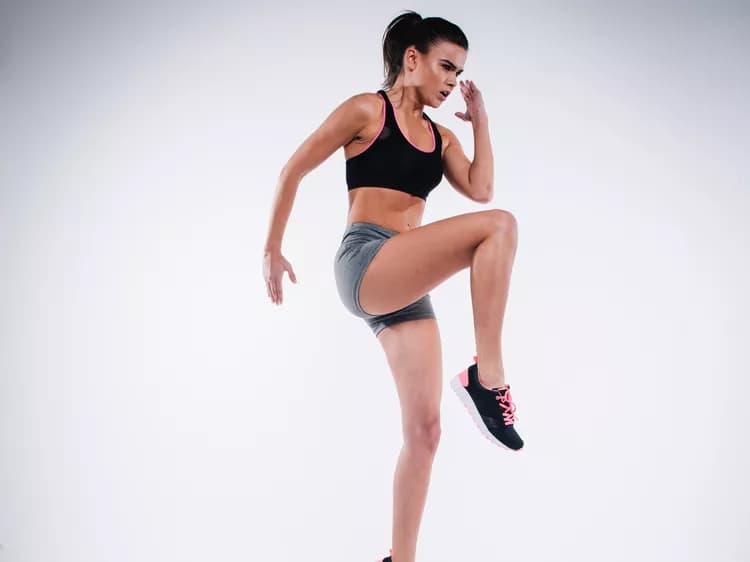
Researcher Examines Effect Of Exercise On Breast Cancer Survivors
A researcher at Syracuse University has simple advice for breast cancer survivors struggling with the side effects of Aromatase Inhibitors (AIs): exercise.
Gwendolyn Thomas, assistant professor of exercise science, is the co-author of a groundbreaking article in the Obesity Journal (The Obesity Society, 2017) about the effects of exercise and physical activity on postmenopausal breast cancer survivors taking AIs -- hormone-therapy drugs that stop the production of estrogen. She contends that a combination of resistance and aerobic exercise helps mitigate the side effects of AIs and improves health outcomes in breast cancer survivors, particularly their body composition.
While AIs significantly reduce the risk of breast cancer recurrence, they often lead to bone loss or severe joint pain, known as arthralgia. Hence, many survivors -- nearly 40 percent of them, according to one study -- stop taking AIs long before their customary five-year treatment period expires.
"When women quit taking AIs, they increase the chances of their breast cancer reoccurring," says Thomas, who joined the SOE faculty in August. "If breast cancer survivors are obese or overweight, they are likely to experience arthralgia. Interventions that address obesity in women taking AIs can help them continue this necessary treatment."
Funded by a grant from the National Institutes of Health, Thomas' study was conducted at Yale, where she previously was an associate research scientist and worked alongside Melinda Irwin, a professor of epidemiology and the project's principal investigator.
Irwin and researchers from Yale, Columbia, Penn State and the Dana-Faber Cancer Institute in Boston led the project, which was the first to examine the effects of aerobic and resistance exercise on postmenopausal breast cancer survivors taking AIs. Participants did two sessions of weight training and 150 minutes of moderate aerobic activity, such as brisk walking or jogging, every week for a year. The researchers then monitored the participants' body composition, including their body mass index, percent body fat, lean body mass and bone mineral density.
"We noticed a drop in percent body fat and body mass index, as well as a significant increase in their lean body mass," says Thomas, who earned a Ph.D. in kinesiology from the University of Connecticut. "These changes have clinical benefits, but also suggest that exercise should be prescribed in conjunction with AIs, as part of a regular treatment regimen."
It is well documented that breast cancer is the most common cancer diagnosis among American women. Moreover, approximately 65 percent of breast cancer survivors are overweight or obese.
Because most breast cancers are hormone receptor-positive (i.e., they use estrogen or progesterone to grow and spread), survivors often rely on hormone therapy, such as AIs, to keep the disease from returning.
AI treatment, however, can be a double-edged sword because of the aforementioned effects that are not connected to age-related decline.
"These changes put women at risk for frailty fractures and osteoporosis, not to mention further risk for comorbid chronic disease and cancer reoccurrence," Thomas continues.
Most of the participants, she notes, were predominantly white and highly educated. Prior to the study, most of them exercised no more than 55 minutes a week.
"There are so many barriers to exercise in everyday life," she explains. "We can tell our patients they need to exercise, but helping them meet their goals is something at which we [as exercise scientists] need to do a better job."
Helping breast cancer survivors meet their physical activity goals is what Thomas is working on next. She currently is recruiting participants for a related project, supported by a fellowship from the Patterson Foundation. Her goal? To develop a fitness app for breast cancer survivors.
"I'm really excited about this project because it will enable graduates and undergraduates to engage in patient-oriented intervention research," Thomas says. "By using a mobile platform for health promotion and behavior change, we can make exercise more accessible to breast cancer survivors, especially those who take inhibitors and struggle with obesity or being overweight."
Materials provided by Syracuse University. Note: Content may be edited for style and length.
Disclaimer: DoveMed is not responsible for the accuracy of the adapted version of news releases posted to DoveMed by contributing universities and institutions.
Primary Resource:
Thomas, G. A., Cartmel, B., Harrigan, M., Fiellin, M., Capozza, S., Zhou, Y., ... & Schmitz, K. (2016). The effect of exercise on body composition and bone mineral density in breast cancer survivors taking aromatase inhibitors. Obesity. DOI: 10.1002/oby.21729
Related Articles
Test Your Knowledge
Asked by users
Related Centers
Related Specialties
Related Physicians
Related Procedures
Related Resources
Join DoveHubs
and connect with fellow professionals

0 Comments
Please log in to post a comment.